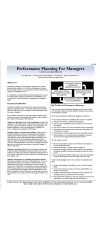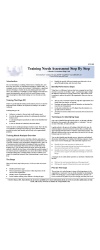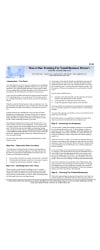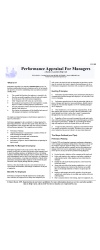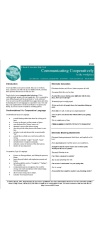With the beginning of the school year, the “war” between parents and teachers begins anew. Both parents and teachers have the same ultimate goal: To provide the best education possible to students going to schools, which is a good thing, but there’s a stark difference between the roles and responsibilities of each. Truly parents and teachers often seem to be from planets at different ends of the solar system when it comes to HOW to reach their shared goal.
Perceptions Of Parents About Teachers
When I was researching Building Bridges Between Home And School: The Educator’s/Teacher’s Guide To Dealing With Emotional And Upset Parents I talked to a number of parents about their feelings and opinions about teachers. Here are just some of the comments:
“As both a parent and a teacher, I find that teachers complain about parents not coming to school, but at the same time make it very difficult to have any kind of meaningful dialogue … discussions are one sided, with parents clearly put in the role of passive students.”
“Too often the public school system employees … get this backwards, and behave in either an arrogant or condescending manner towards parents and members of the public. Doggonit ,public school teachers work for me, and the rest of us who pay you.”
“One only has to look at the many corrosive attacks on parents … to see how many educators look upon parents as their enemy, and as fit scapegoats for all the frustrations involved in teaching. As an actively involved parent and responsible person who has put in approximately 50 hours a week volunteering at local schools, I wonder how teachers can continue to be so defensively insulting on a daily basis and still expect parents to be supportive of them.”
“We walk in with our most precious projects, thereby opening ourselves up to the very real possibility of all our hard work being criticized as bad parenting (i.e. over, lax, no home discipline, ‘abdicating of responsibility’, etc.). Teachers, who are constantly evaluating students’ behavior, cannot seem to stop evaluating us.”
“I have found school districts are only responsive when a well documented paper trail is being created — one that could be used in a court of law. I’m not saying every parent should or could sue, I’m saying that this is a more concrete way of getting a serious response.”
“Some of us have been fortunate enough to have been touched by the rare teacher who cared enough to do a good job … We know that school counselors are, more often than not, no more than dead weights holding a desk chair in place. We know how many principals and vice principals wandered the halls of our schools with nothing useful to do, but with plenty of time to harass anyone who stands out as unusual or non-conforming.”
“Oh come on… it may be stressful at times but many jobs are. Unless you teach in a prison… teaching isn’t any more stressful than that of an electrician working on power lines … Get off your pedestal!”
Perceptions Of Teachers About Parents
“Her mother came to school …. walked into the front office and without asking to see me walked right into my office. She put her finger in my face and started screaming obscenities at me.”
“[The student] and his mother came marching into our school with the attitude that we are all bad and her son is the ‘poor injured party’. After telling us all on the team and our principal that we are incompetent as teachers and that her son is not learning anything …”
“…I’ve had conferences with parents who came drunk, parent aides correct me in front of the class (when they are in fact incorrect), favor their own children, make angry, vulgar comments to students who didn’t understand “quick enough” and more.”
“As both a parent and a teacher, I find that teachers complain about parents not coming to school, but at the same time make it very difficult to have any kind of meaningful dialogue … discussions are one sided, with parents clearly put in the role of passive students.”
“I would like to be respected by parents. Often, parents have arrived with no appointments and expected me to be available. They often take the child’s word regarding a classroom incident without waiting to hear my perspective on the situation.”
“I don’t consider you, the parent, my employer You have no direct power over me in the classroom. However, I always ask parents for input. Sometimes I take their suggestions, sometimes I don’t, since I clearly have insight and knowledge of situations and circumstances the parent couldn’t begin to know.”
“Boy, do I wish parents would keep appointments with me. I would estimate that 75% of parents who request appointments with me fail to show up, or show up at a time other than requested, as if I were sitting in an office all day and could easily put aside my work.”
It’s pretty startling to see the chasm of hostility that often exists between educators and parents, particularly when the educational research is quite clear. Children who have constructively involved parents simply do better in school. And, it’s also pretty obvious that issues and problems that occur around school almost ALWAYS require parents and teachers to be involved in the solution. Getting that to happen is a lot harder than it ought to be when both parents and teachers have negative perceptions of each other, or don’t understand the different roles and responsibilities each has.
A Shared Goal, But Hugely Different Roles And Responsibilities
While there will always be some bad apples, parents and teachers who don’t “care”, the majority in both camps are well meaning. So why is it that interactions between them are often strained, and even hostile?
It’s because there are distinctly different roles for each that get lost in translation. When it gets down to details, these different responsibilities push teachers (and principals) into conflict with parents.
Parents:
- Responsible and concerned about the welfare of THEIR individual children.
- Have many demands on their time, and “life situations” that may not be obvious to others (single parenthood, economic issues).
- Feel they are in a position to know what’s best for their children in terms of how they are taught in the schools, because a) it’s their children at issue, and b) everyone has experience in schools and tends to apply that experience to one’s own children, even if it’s wrong. Parents do think they know more about education and teaching than they actually know.
- Not usually exposed to the restrictions, rules and issues that apply to schools, and limit or constrain what a teacher or principal can actually do. So, it seems like teachers are “uncooperative” and uncaring, when in fact, they can’t comply with many parental requests because they lack the authority to do so.
Teachers:
- Responsible for the welfare of ALL their students, rather than only one or two. Teachers need to balance what they do to serve all the children in their classes, and that often restricts what can be done for any one specific child.
- Have to work within the constraints and curricula given to them, and the decisions made by principals, superintendents, school boards and local and state government. That’s a limiting factor on what a teacher can do to meet the needs of any specific student.
- Feel that they have more knowledge of teaching and education than do parents, since they have spent time at the university level to acquire it. Often they do, in fact, have more information about pedagogy.
- Also have demands on their time way above and beyond what they do in the classroom — the invisible tasks of teaching positions in the school, and parents are often not aware of those demands.
Are There Solutions To Reduce Conflict Between Educators and Parents?
As is the case with many situations where parties come into conflict because of different, and sensible agendas, there’s no easy solution. It will never be the case that parents will sacrifice the welfare of their individual students for the welfare of all other students, and it will never be the case that teachers will sacrifice the welfare of all their students for the sake of one.
Beyond that it’s about helping both teachers and parents to better understand the circumstances of the other. That teachers cannot often do what parents ask, not because they don’t care, but because they work within systems that don’t allow it. That well intentioned parents, acting out of concern are often frustrated with a system that is oriented towards creating the most good for all students and that parents often act out of fear about the future of their children.
We need to build bridges of communication between both parties and that means both sides being more open to, and understanding the different roles and responsibilities of parents and school staff.
Ultimately, teachers and school administrators have to take on the task of learning how to improve communication with parents, and break through the negative perceptions many parents have. That’s because it’s part of the job, and ultimately, teachers cannot succeed in educating children without the cooperation of parents.
Robert Bacal holds an M.A. in Educational Psychology, and has supervised high school practice teaching, taught at faculties of education, and trained instructors and teacher to be more effective in their classrooms.
His book, Building Bridges Between Home And School: The Educator’s/Teacher’s Guide To Dealing With Emotional And Upset Parents is available in PRINT, in PDF format, and for the KINDLE.
There’s more on this topic and on others of interest to both parents and educators at It Takes A Village To Teach A Child – Building Bridges Between Schools And Parents

